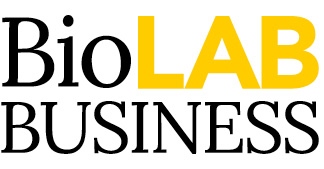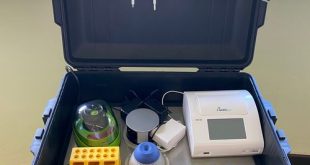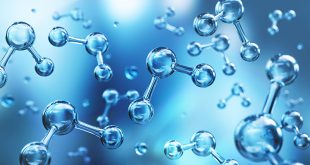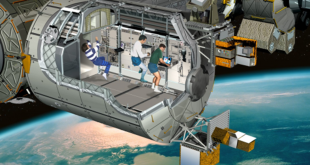The health of the Atlantic Ocean is the focal point of a new sweeping initiative, AtlantECO, undertaken this fall by 36 organizations, including the European Molecular Biology Laboratory’s European Bioinformatics Institute (EMBL-EBI) to explore the Atlantic Ocean from pole to pole.
Funded by the European Union, the project will map new and existing knowledge about the microscopic organisms that inhabit rivers, coastal waters, the open ocean, marine sediments and the atmosphere. The study also will analyze microbes found on plastic litter, which is now a part of all these environments.
“The colossal amount of data generated will be curated and openly shared with the international scientific community, allowing researchers everywhere to build their own analysis and modelling tools,” explains Guy Cochrane, team leader of data coordination and archiving at EMBL-EBI. “This kind of international and interdisciplinary work will help us understand the impact human activity has on oceans.”
Microbiomes support life on Earth and are key to understanding marine ecosystems. Inspired by medical research that combines next-generation genetic, imaging and environmental approaches, AtlantECO will develop diagnostic tools and metrics to assess and predict changes in the health of the Atlantic Ocean.
Researchers will conduct fieldwork via national oceanographic vessels and specialized sailing boats. Stopovers with local communities around the Atlantic basin will engage in outreach, citizen science and awareness campaigns, delivering a wide-ranging capacity-building program for professionals, students and young people.
AtlantECO will determine how marine regions and their ecosystems are connected by developing models that account for dynamic processes such as large river plumes and ocean circulation. These models will help predict the migration of species, the ability of the ocean to capture and store carbon dioxide, the transport of pollutants and hazards, and the balance between ecosystem health and human activities.
The project hopes to shed light on the early detection of harmful threats in aquaculture sites, the impact on microbiomes and coastal ecosystems of mining off the coast of South Africa, the impact of climate change on fisheries value chains, the response of microbiomes to offshore drilling and the impact of fossil fuel extraction off the coast of Brazil.
This huge scientific undertaking reflects the Belém Statement, co-signed in July 2017 by the European Union, Brazil and South Africa, which aims to fill knowledge gaps between the widely studied North Atlantic and the under-studied South Atlantic regions.
 BioLab Business Magazine Together, we reach farther into the Canadian Science community
BioLab Business Magazine Together, we reach farther into the Canadian Science community





